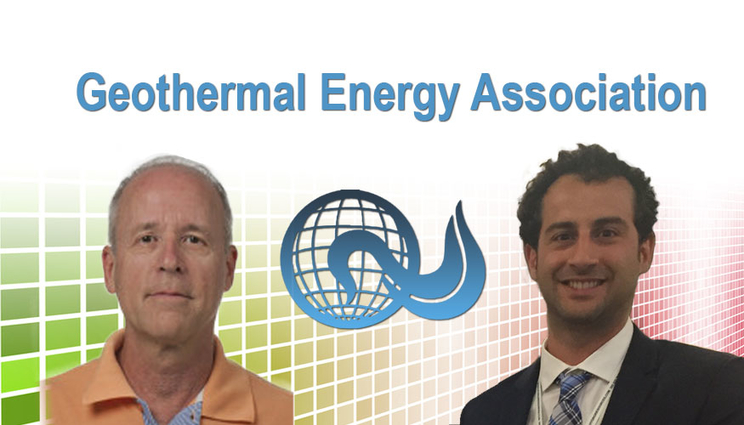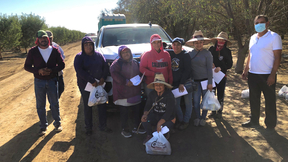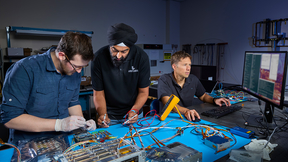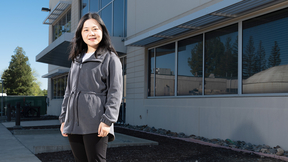Lab researchers land geothermal energy award
 (Download Image)
Lawrence Livermore National Laboratory engineers Tom Edmunds (left) and Pedro Sotorrio have been honored by the Geothermal Energy Association for their significant contributions during the past year to advancing technology, spurring economic development and protecting the environment.
(Download Image)
Lawrence Livermore National Laboratory engineers Tom Edmunds (left) and Pedro Sotorrio have been honored by the Geothermal Energy Association for their significant contributions during the past year to advancing technology, spurring economic development and protecting the environment.
Lawrence Livermore National Laboratory engineers Tom Edmunds and Pedro Sotorrio have been honored by the Geothermal Energy Association for their significant contributions during the past year to advancing technology, spurring economic development and protecting the environment.
Edmunds and Sotorrio, of the computational engineering division at LLNL, received a special recognition award specifically for their work advancing knowledge and research on flexible geothermal contracts.
In future electricity grids, not only will geothermal power have to provide baseload services, it also will need to provide flexible and ancillary services. Research published by Edmunds, Sotorrio and LLNL’s Tom Buscheck contributes to the understanding of this aspect of flexibility, and gives the geothermal industry a first look at what that future might look like. Their research is critical to the industry's understanding of a flexible geothermal future.
At the opening of the National Geothermal Summit on June 3, the Geothermal Energy Association presented its Annual Honors Awards for advances supporting industry growth.
The LLNL report explores economic incentives and innovative reservoir management strategies for geothermal plant operators to provide flexibility. Historical and forecast ancillary service prices are compared to operator compensation for energy only under firm contracts at fixed prices, which are higher than current or year 2020-projected real time market clearing prices for energy.
State renewable portfolio standards requiring more intermittent wind and solar generation will increase substantially the uncertainty and variability in grid operations. Geothermal power plant operators could mitigate variability and uncertainty by operating plants in a more flexible mode. Plant operators would be compensated for flexibility through payments for ancillary services such as frequency regulation, load following and spinning reserve.
In general, ancillary service prices for the years 2011 through 2013 were too low to provide geothermal plant operators sufficient economic incentive to provide flexibility. Ancillary service prices in the year 2020, when California is projected to meet a 33 percent renewable portfolio standard, are significantly higher.
Although current contracts and business practices do not provide for flexibility, "we postulate new contract structures that would allow a geothermal plant operator to switch from providing energy-only to providing flexibility to the grid operator when it is advantageous to the plant operator to do so," Sotorrio said. Additional revenues could be earned through ancillary service payments.
Contact
 Anne M. Stark
Anne M. Stark
[email protected]
(925) 422-9799
Related Links
LLNL GeothermalLLNL Computational Engineering directorate
Geothermal Power for Integration of Intermittent Generation
"2020 Vision for California’s Electric Grid," Science & Technology Review, December 2013
Related Files
DownloadTags
Physical and Life SciencesFeatured Articles







